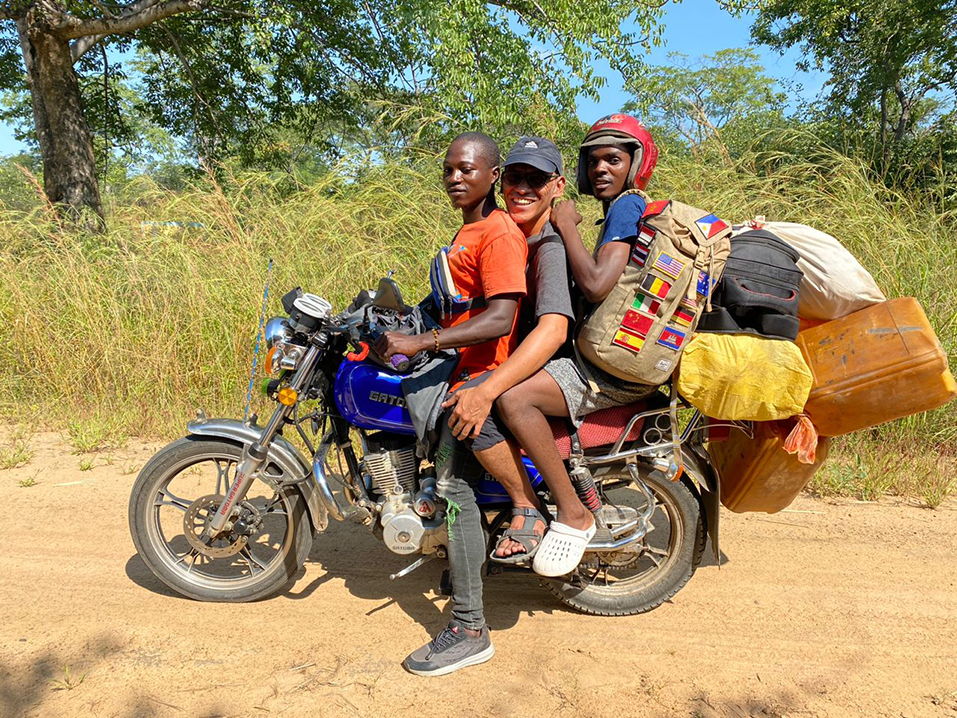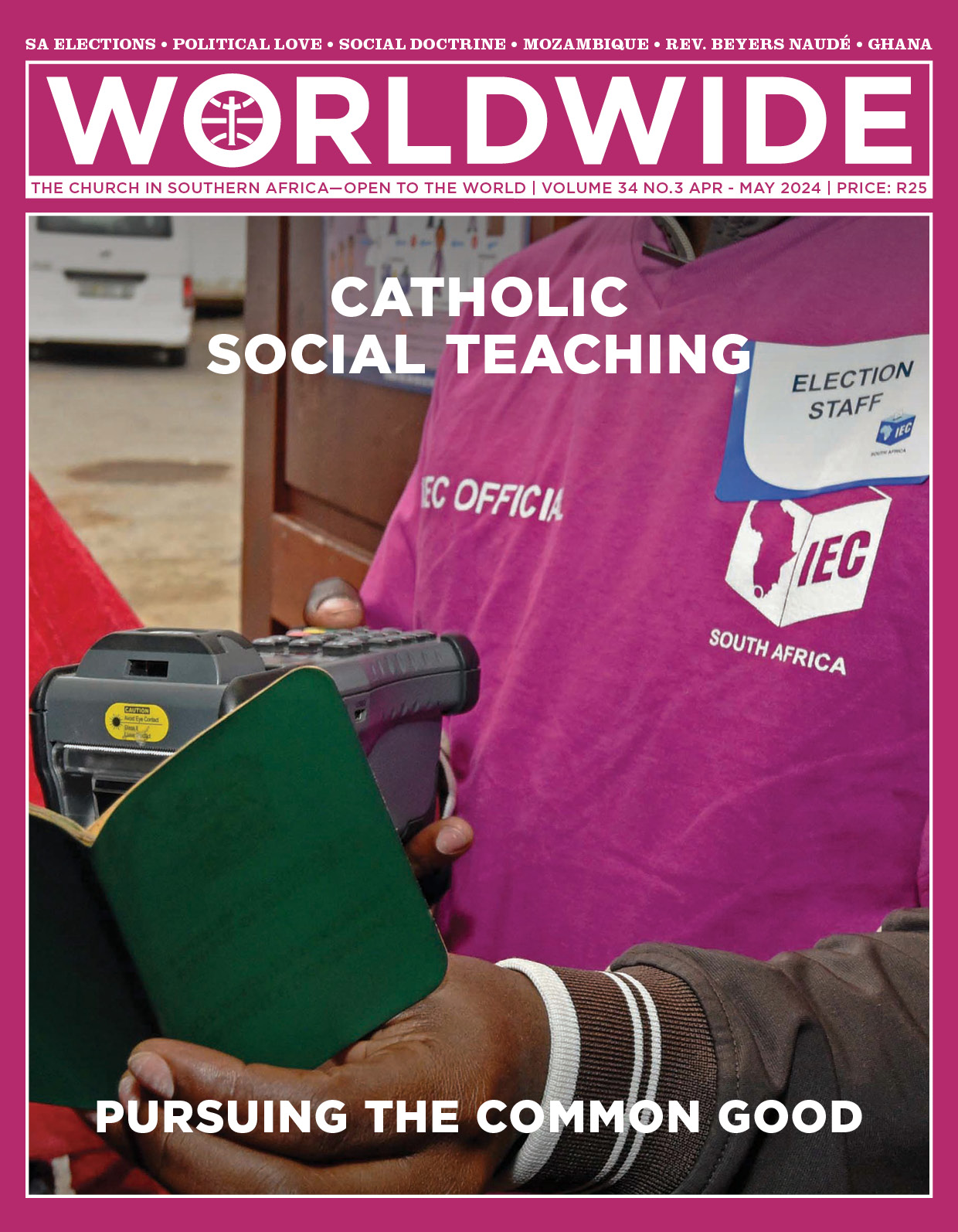
CATHOLIC SOCIAL TEACHING, PURSUING THE COMMON GOOD
It is the honourable responsibility of Christians to contribute by means of active participation to building a society where the common good is fundamental. As Pope Benedict XVI affirmed: “There is a need for authentically Christian politicians but, even more so, for lay faithful who witness to Christ and the Gospel in the civil and political community.” (Address to the 24th Plenary Session of the Pontifical Council for the Laity).
FRONTIERS • GHANA
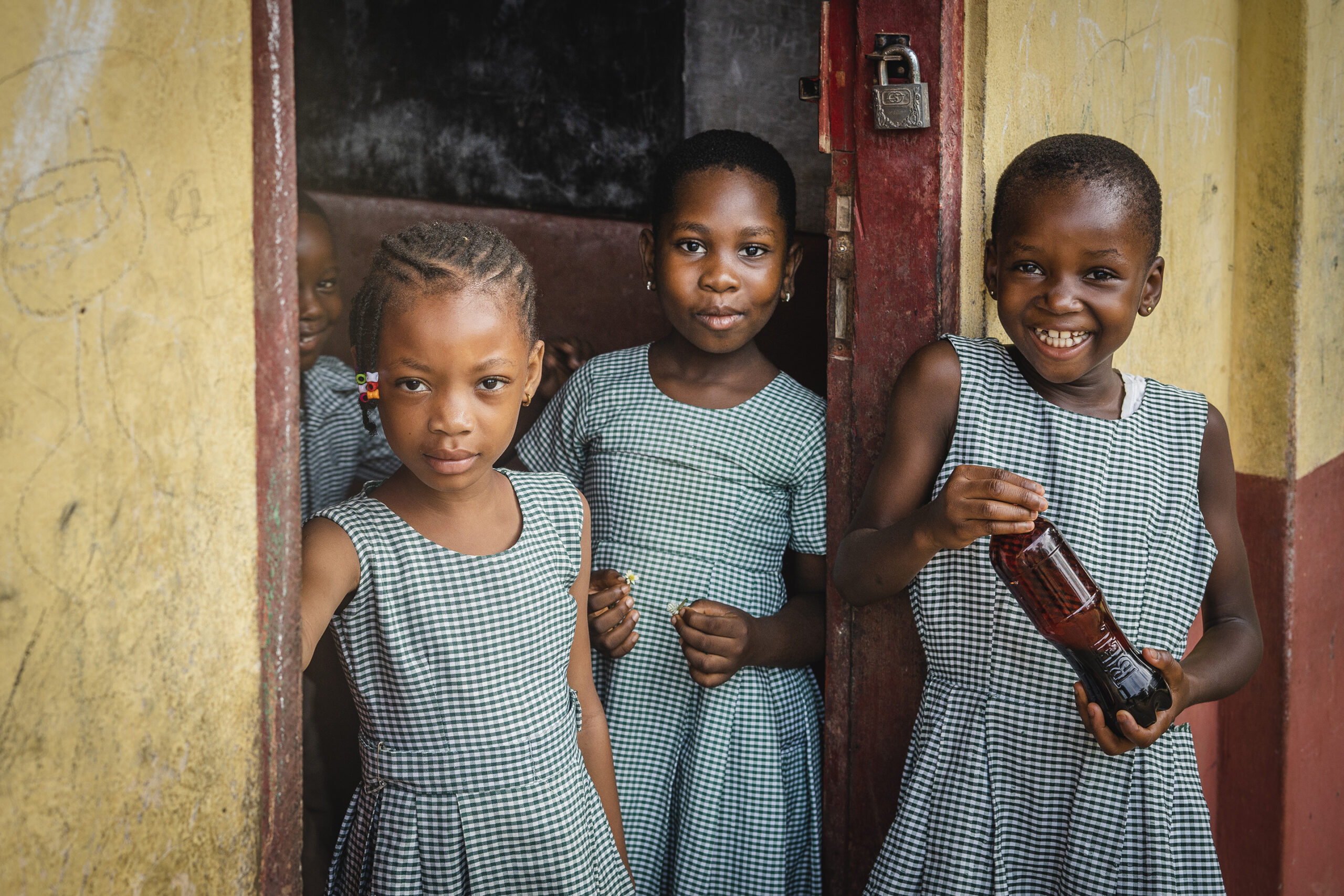
THE BLESSINGS OF A HUMAN DEVELOPMENT PROJECT
In the city of Abor, in the east of Ghana, Fr Giuseppe Rabbiosi, an Italian Comboni missionary, founded In My Father’s House in 2000. It is an initiative geared toward the holistic care of children. The project is now home to 120 children and its school serves 800 pupils from the surrounding areas.
BY JAVIER SANCHEZ SALCEDO | JOURNALIST, FROM ABOR, GHANA
THE FIRST thing that strikes anyone who approaches the complex is its beauty; palm and mango trees cover a large part of the site. Secondly, one is surprised by the large number of children and young people wandering all over, playing, chatting, or sitting on a kerb, contemplating life. It is like a small village with elongated, one-storey buildings painted in shades of cream and blue.
Inside, rooms, classrooms, a kitchen, a clinic, a workshop …. also, a tower, a park, a soccer ground with two goal posts and a chapel dedicated to St Daniel Comboni. Further on, the vegetable garden. Around the corner, more classrooms. In the afternoon, with the light filtering through the branches, the atmosphere is quiet, while activity is evident. Some girls hang their recently washed T-shirts out to dry, while joking among themselves. A group of young men—one of them holding two wooden crutches—chat while sitting on old tyres.
A couple of dogs rest in the sun. Two women fry banana and cassava slices. It’s quiet in Abor’s Children Village, for some of them an oasis of second opportunities. It all started when an Italian Comboni Missionary, Fr Giuseppe Rabbiosi— known in Ghana as Father Joe— founded In My Father’s House in 2000. It is a Non-Profit Organization aimed at setting up a series of initiatives, focused especially on certain social needs of the most disadvantaged children in the Volta region of south eastern Ghana.
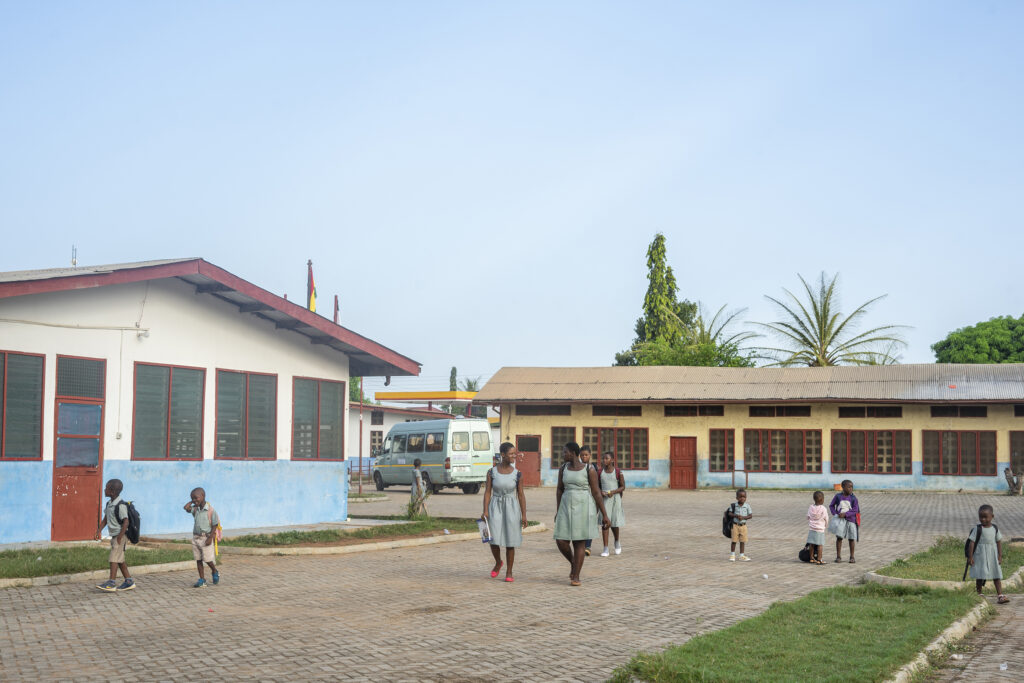
“African children are currently among the most vulnerable and exploited people on earth. It is time for the entire human community, including Africa itself, to wake up to this unjust reality […] and work for the creation of an environment of mutual partnership and just solidarity,” Rabbiosi wrote on the NPO’s website to explain the motivations for and reasoning behind the project.
The 75-year-old priest has delegated the management of the centre to two lay Ghanaians, hailing from villages near Abor: Frank Amenyo and Wisdom Seade. Amenyo, a father of four, has maintained a close relationship with Rabbiosi since they met during a vocational course when the Ghanaian was in his twenties and was aspiring to the priesthood.
He was unable to complete his studies due to a heart problem which forced him to spend all his financial resources, but the Religious helped him to complete his baccalaureate and sent him to Italy to be treated for his ailment. When Amenyo returned, they founded In My Father’s House. “When we started, we had only 12 000 m2 and one building. Little by little, we thought of more ambitious plans and, over time, we acquired other plots of land. At the moment we have 24 hectares”, explains the Ghanaian. The first thing they built were a school and a home for underprivileged children. Then they set up a transport service through the villages in the area so that the children could attend classes. “We started the school with 17 pupils. Today there are 800.”
In My Father’s House is a home for those who bear the hardest challenges in life
Amenyo manages the centre in tandem with Wisdom Seade, father of two. After ten years of involvement in the project, he oversees the administration, coordinates the school, and teaches economics and business at secondary school level. “When I heard about the work Joe and Frank were doing, I joined in to help them and those who live without hope. Fr Joe always insists that we have to be a living witness to the Gospel. When people need God, they pray. So, to assure them that God hears them and is close to them, we need to do it with projects like this,” Seade asserts.
Sharing Stories
Perhaps the most relevant feature of In My Father’s House is that it is a home for those who bear the hardest challenges in life: children with disabilities, those hailing from broken homes, some who have lost their parents or have been abandoned. “I can explain some cases to you; this year we took in four children who had been abandoned and were found almost lifeless. We rushed them to the hospital and we were able to save them,” says Amenyo. “Another case was that of three children born to the same mother but from different fathers. The mother could not maintain them and the fathers did not take care of them either. They were sick and malnourished. We took them in and after passing through the hospital and receiving the food they needed, they improved dramatically.” These children and young people with special needs live in the village together with other boarding school pupils whose families stay far from the city. In total there are 120 children. Together with their care workers and their families, they form a community of 200 people.
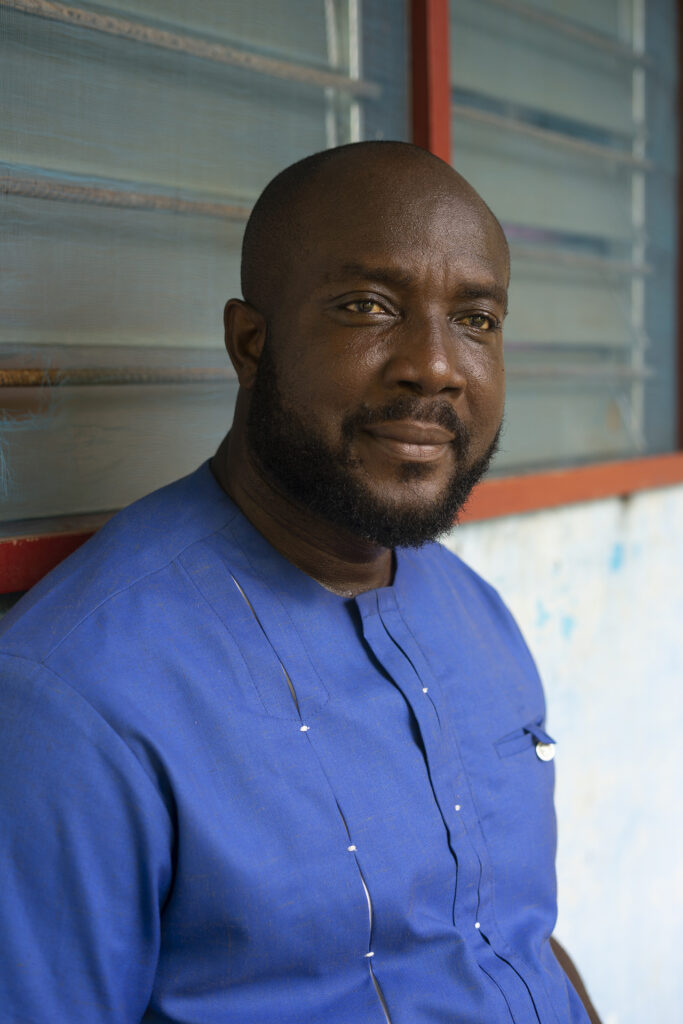

“The children who do not have a family to take care of them maintain a close relationship with the boarders,” Seade adds. “The former are very vulnerable. They go through very painful processes and some of them have psychological problems. It is very healthy for them to engage with others, to live together and tell each other their different life stories”. The centre promotes the idea that these children spend their holidays with a family so that, as far as possible, they do not feel excluded. “We believe that they are all very happy together. Our aim is that they complete their schooling, and that we then find a suitable place for them which will allow them to reintegrate into society.”
The School
Every day, at around seven o’clock in the morning, the Children’s Village welcomes hundreds of pupils who arrive from their homes either on foot or by bus. Once in the classrooms, a new day starts for them. The school runs from the first years of primary school to the last of secondary. The families pay the little that they can afford. “We are satisfied with the fact that they help us to cover a small part of the teachers’ salaries. We take care of the rest,” says Seade. Thanks to a system of scholarships, students who finish their studies are offered the possibility to continue vocational training or higher education. The school has a specific programme for teachers’ training. Some of these students are sent to remote areas where they put into practice what they have learnt. “They go to impoverished and educationally neglected areas, far away from urban centres and where teachers are unwilling to stay,” Seade explains. “The trainees remain there for a year. We first erect a small hut to start classes and, if everything progresses satisfactorily, we build a proper school. Once it is up and running, we hand it over to the government.”
Thanks to a system of scholarships, students who finish their studies are offered the possibility to continue vocational training or higher education.
The organisation has already built 75 schools in rural areas, and around 400 students have been trained and are now teaching in other schools. In addition to education, In My Father’s House also follows a health programme through which they raise funds for medical operations for people with serious illnesses, such as cancer or heart problems. Some of the nurses at the centre were once students here. Each year they receive help from an international organisation of doctors for surgical interventions. They also plan to build a small health centre in a remote village which is isolated during the rainy season. All this work that In My Father’s House carries out is made possible thanks to another sister organisation in Italy, Nella Casa del Mio Padre, made up of volunteers who identify with the Comboni values and charism.
“It started with a small group of relatives and friends of Fr Joe and now they are the main source of income for the project,” Amenyo explains. To raise additional funds and contribute to sustain the activities in the village, they have started to grow rice, cassava, maize and beans. They have also started a chicken and pig farm. With what they produce, they feed the children at the centre and help other families in the area, distributing bags of food every month. “Some benefactors from the city come to the centre when they hold a special event and give us a donation, most often in kind, such as a sack of rice, a few kilos of beans or sugar. We don’t receive any government subsidy, so all private donations are always welcome,” Seade adds.
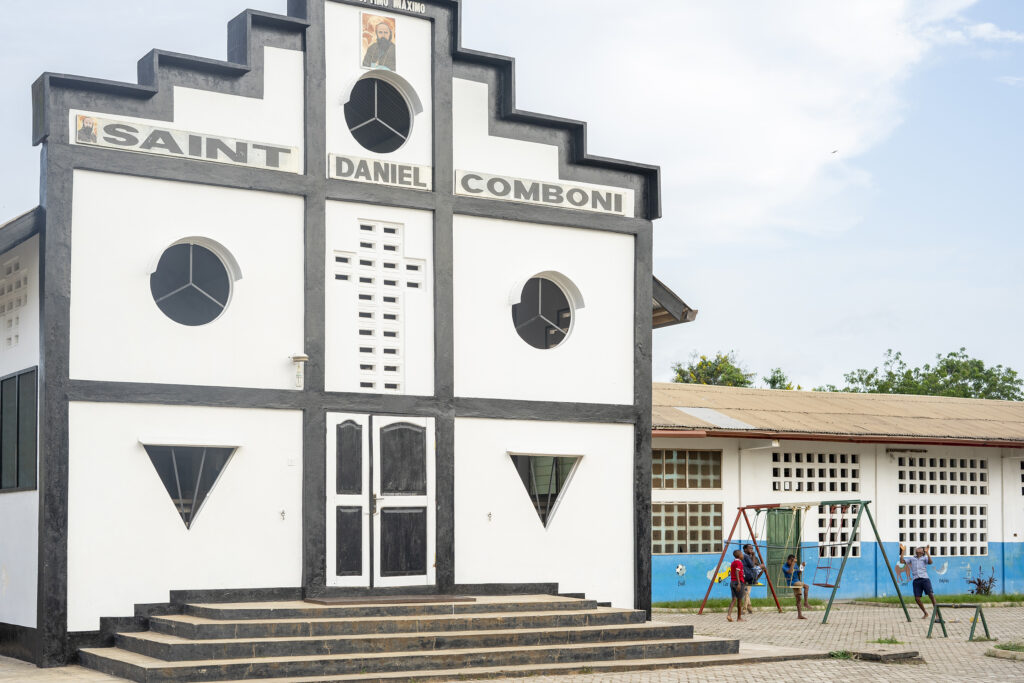
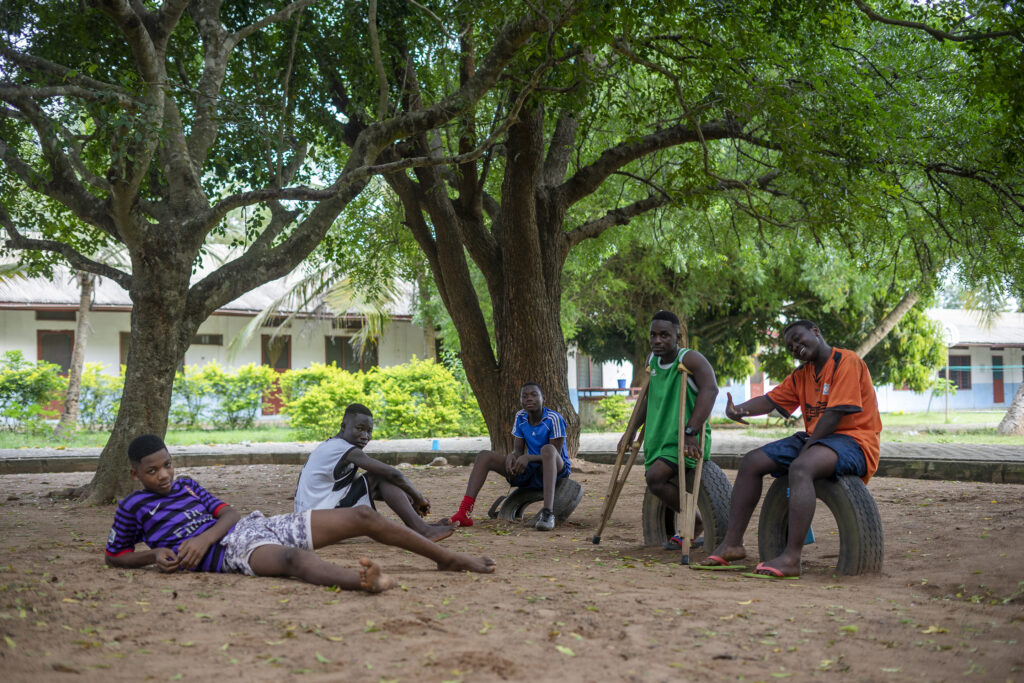
“The ultimate goal of everything we do is that people who pass through here may become self-sufficient in life. If we achieve this, it will have been worth it,” says Amenyo, before confessing that there is one thing that worries them: Fr Rabbiosi’s age. “Will we be able to continue this work that he has been leading for more than 20 years when he is no longer with us?” he wonders. Both he and Seade are certain that the project must become increasingly autonomous and less dependent on aid from abroad, as it has been up to now. To this end, they are considering a series of proposals which can generate income, such as increasing the farms and enlarging the school, building more accommodation for new boarding students and bungalows to rent out to employees working at the centre.
The project must become increasingly autonomous and less dependent on aid from abroad
They also sell water from the wells of the school grounds or use the facilities to teach new courses during the weekends for those who want to broaden their academic and professional knowledge base but cannot do so from Monday to Friday for work reasons.
“Father Joe has told us that he is willing to leave the project at any time; he feels he has fulfilled his mission. He always repeats Daniel Comboni’s motto: “Africa will be saved by the Africans”. For me, the future is hopeful, but serious questions lay ahead. We have to be prepared and plan well for what might happen. He trusts us and we are committed to being trustworthy,” concludes Amenyo.

